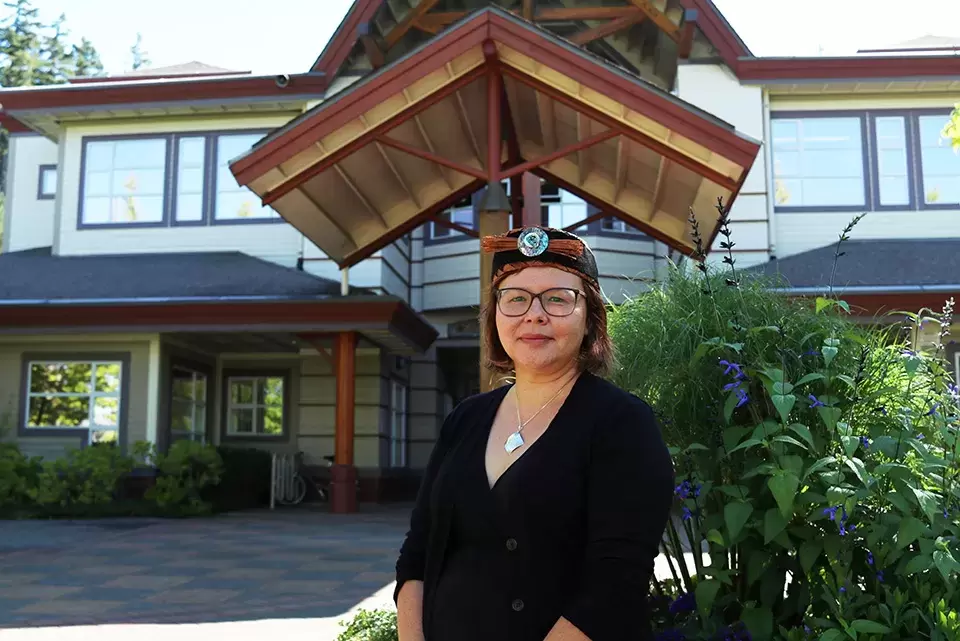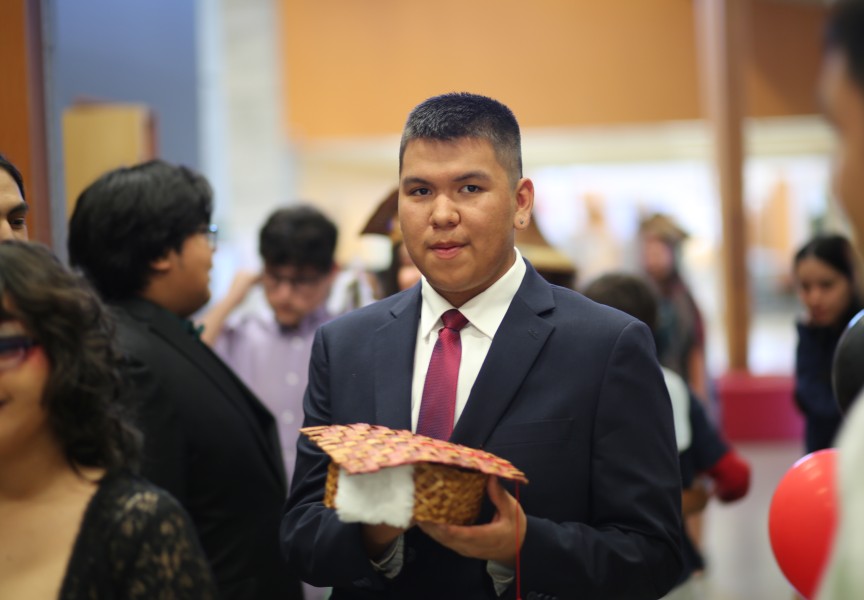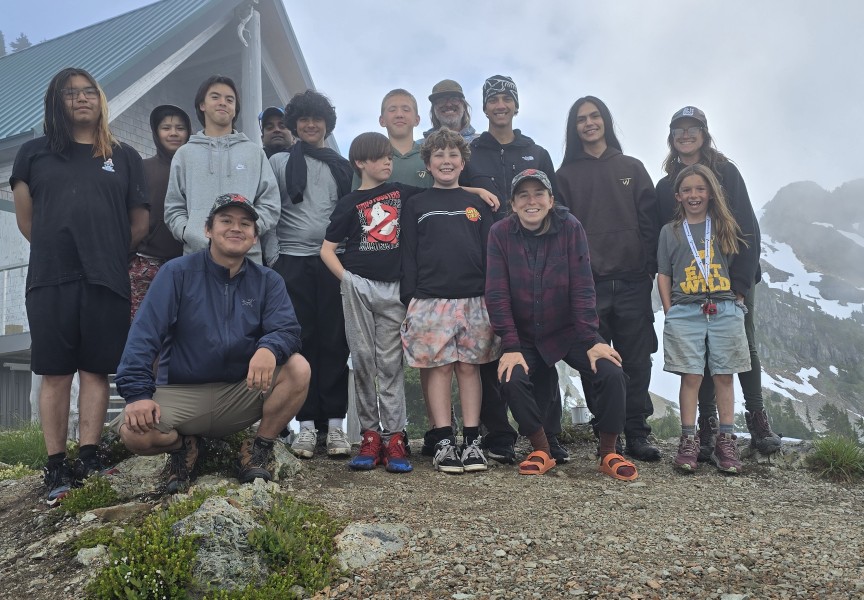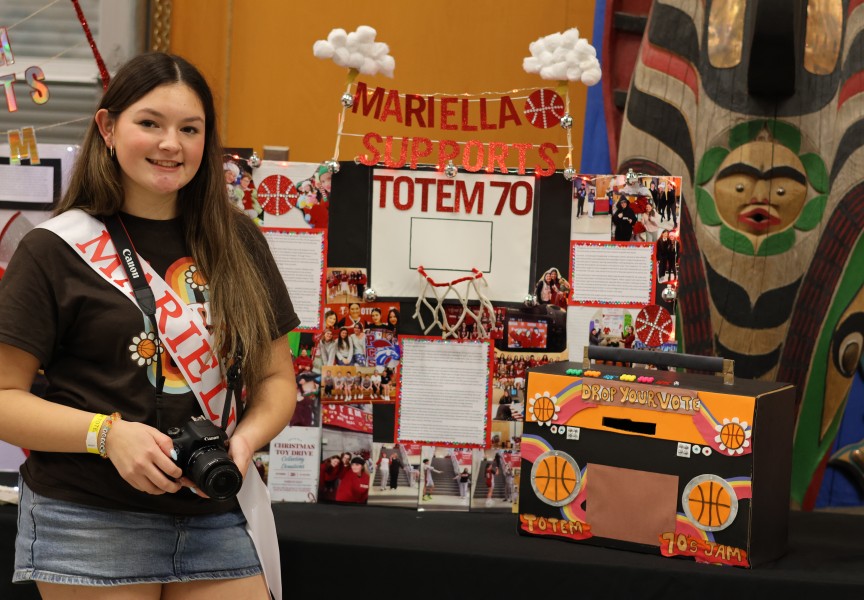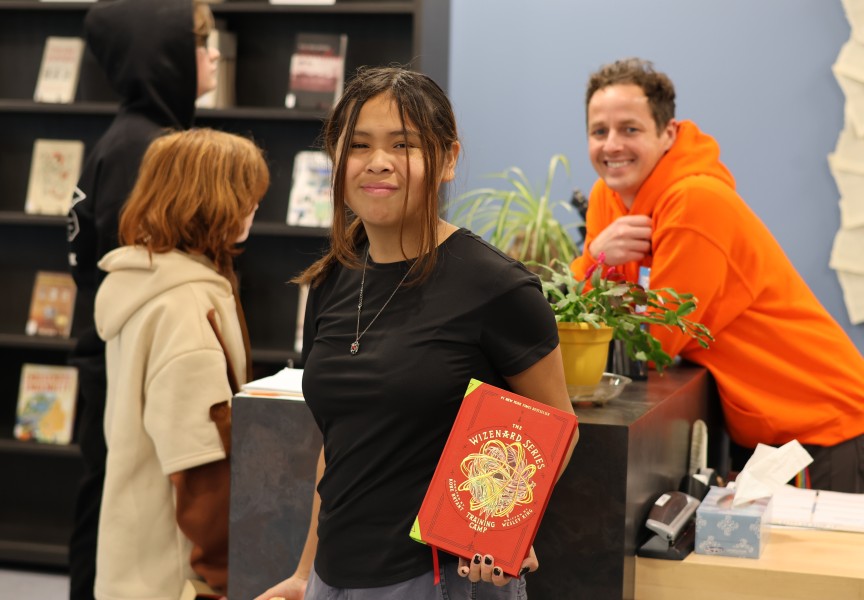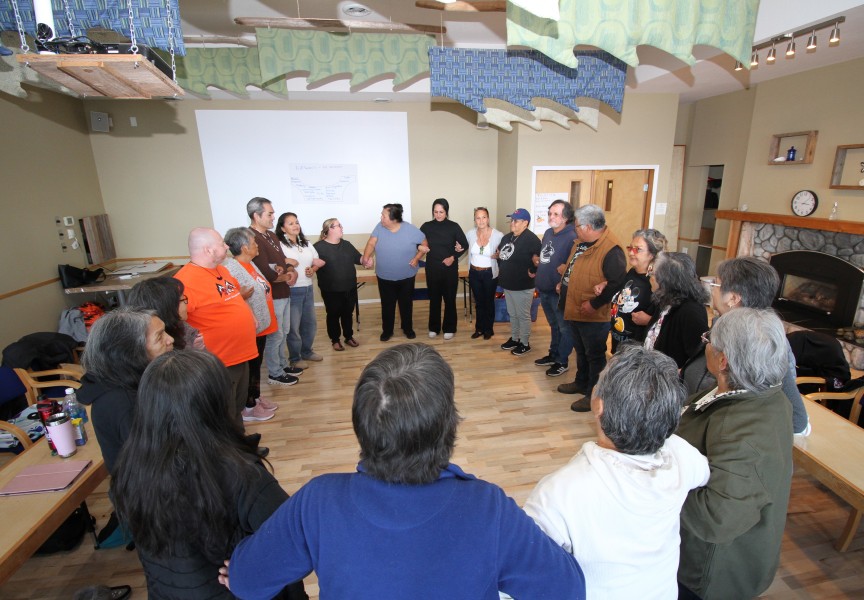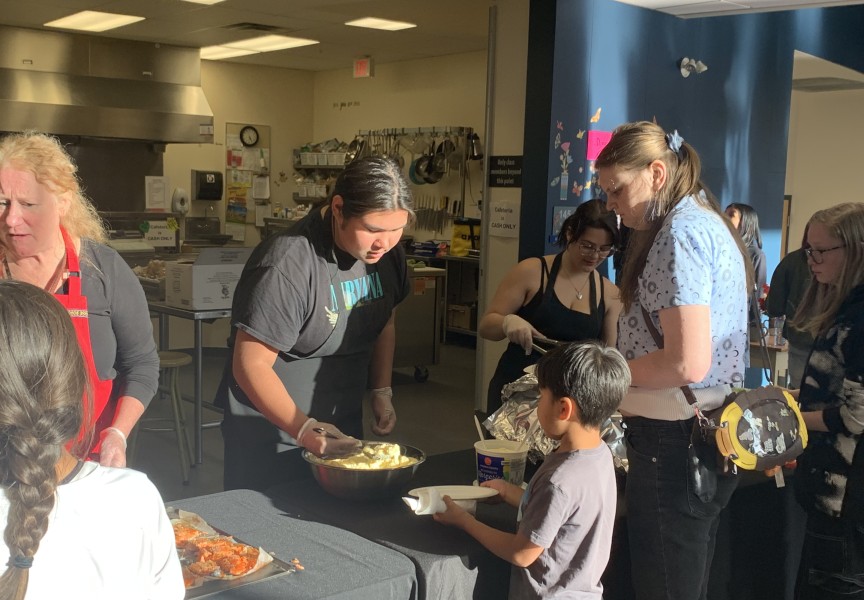This September, a group of Nuu-chah-nulth students began the Level 1 Carpentry course at North Island College’s Port Alberni campus, with possible opportunity awaiting to build an apartment complex for Ahousaht residents in the small city.
Meeting a dire need for urban Ahousaht members, the 35-unit, four-storey development from the Citaapi Mahtii Housing Society presents exactly the type of opportunity Marisa Bennett hopes to foster at the college’s Port Alberni location, where she recently saw her role expand from Indigenous and Regional Partnerships to encompass campus administrator as well. The Ahousaht member is the first Nuu-chah-nulth person to take on the campus administrator role since the college opened in Port Alberni in 1976.
Bennett reflects on 10 partnerships NIC has brought into First Nation communities since she joined the college a year ago, including a chance for trades sampler students to build smokehouses on the nearby Tseshaht First Nation reserve as part of their course work in 2021.
“My goal is for community engagement,” said Bennett, emphasizing the importance of NIC responding to needs that arise from specific communities, rather than following labour market trends. “We always have to be fast and flexible in what we can deliver, because needs come up, and we should be responsive to those needs.”
As the new campus administrator, Bennett hopes to be a familiar face who can help students navigate through post secondary, while supporting them to succeed. She knows the challenges well, as her first attempt studying in post secondary was abandoned, and she had to pay a semester’s tuition back to Malaspina College.
“I wasn’t wanting to be there, so I completely flunked out,” admitted Bennett of the period after high school.
After working for Parks Canada, she ended up taking courses at NIC while living in Ucluelet, making the 200-kilometre round trip twice a week to the Port Alberni campus.
“I had my daughter, I was a single mom, and I knew that if I wanted a better life for her that I would need to go back to school,” she recalled. “It was the instructors there - because it was so small and it was just more personal, that they absolutely made me believe that I could do it.”
University transfer courses followed at the College of the Rockies in Cranbrook, then Bennett continued pursuing her post secondary at Vancouver Island University, which was formerly know as Malaspina.
She doesn’t regret what now appears to be a false start in post secondary.
“It’s okay to have failure, it’s just learning,” said Bennett, looking to lessons from her home First Nation. “Ahousaht elders would say, ‘We make mistakes, and it’s okay to make mistakes, as long as we sit back and reflect and think about it.’”
In recent decades North Island College, with its four campuses and one centre, has worked to better incorporate lessens from the 35 First Nations that call its service area home. A plan published by the institution calls this process “Indigenization”, a “naturalizing” of Aboriginal knowledge systems into the classroom and campus environment.
“This includes infusing Indigenous ways of knowing and being into course work and programs so that they may be seamlessly recognized, acknowledged, and respectfully treated as equal to all other perspectives reflected in campus curriculum,” stated the NIC document. “Indigenization requires recognition that Indigenous worldviews have been significantly affected or overlooked and therefore require restorative processes.”
Now 18.3 per cent of the NIC student population identify as Indigenous, and at the Port Alberni campus this proportion has grown to 28.2 per cent. Meanwhile 20 per cent of the Alberni-Clayoquot region, which includes Port Alberni and coastal communities to the west, identify as Indigenous, according to 2019 figures from Island Health.
Nuu-chah-nulth language classes are among those being offered at the Port Alberni campus this fall, along with the Human Services Indigenous Focus Certificate, health care assistant, early childhood education, culinary studies, furniture design and joinery, as well as Level 1 carpentry.
According to Tony Bellavia, vice-president of academics at NIC, the college seeing the greatest labour markets demands in health care, home support, cooking, daycares and trades.
“Our approach is two-fold,” he explained. “We work to ensure our on-campus programming is meeting those needs, and also working with communities to bring unique training opportunities to meet specific demands.”
Before joining NIC last year, Bennet worked for nine years at the Nuu-chah-nulth Tribal Council, ending as manager of the Nuu-chah-nulth Employment and Training Program. She admits that it was a tough decision to leave the NTC.
“My goals in life are always to work for our people,” she said. “Would I still be working for our people in a separate institution? Would I still be able to incorporate our Nuu-chah-nulth value systems into the work I do?”
“I made the decision to come here, and it’s been a beautiful experience,” she added, noting that watching students grow over their studies is the most rewarding part of her job. “That transformation of that student is what carries me.”

